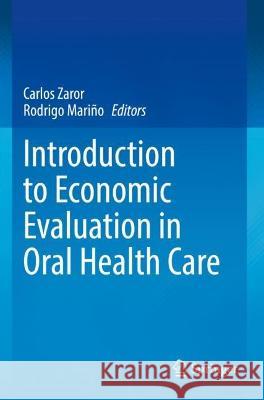Introduction to Economic Evaluation in Oral Health Care » książka
topmenu
Introduction to Economic Evaluation in Oral Health Care
ISBN-13: 9783030962913 / Angielski / Miękka / 2023
Introduction to Economic Evaluation in Oral Health Care
ISBN-13: 9783030962913 / Angielski / Miękka / 2023
cena 402,53
(netto: 383,36 VAT: 5%)
Najniższa cena z 30 dni: 385,52
(netto: 383,36 VAT: 5%)
Najniższa cena z 30 dni: 385,52
Termin realizacji zamówienia:
ok. 16-18 dni roboczych.
ok. 16-18 dni roboczych.
Darmowa dostawa!
This is the first known book on economic evaluations specifically geared to oral health professionals. The book serves as a starting point that explains the concepts and tools required for practitioners with little or no formal training or experience in economic evaluation to conduct such evaluations in oral health(care). It provides the foundation for applying economic evaluation principles to oral health programs as well as more advanced technical information for those interested in acquiring knowledge of health economics within the context of oral health care.
In the book, the authors describe the different types of economic evaluation and discuss their role and application in oral health care. Topics explored among the chapters include:
- Why carry out an economic evaluation in oral health care?
- Aspects of decision modelling for economic evaluation in oral health care
- Interpreting economic evaluation in oral health
- Worked examples in cost-effectiveness, cost-benefit, and cost-utility analyses
- Assessing the quality and usefulness of economic evaluation in oral health: a practical approach for clinicians
- Using economic evaluations to inform decision-making in oral health: Transferability
- Economic evaluation: uses and potential uses in oral health policy development
Introduction to Economic Evaluation in Oral Health Care has an applied orientation that emphasizes practical solutions to managing existing problems and situations in oral health care. As such, the book is essential reading for oral health professionals including dentists, oral health therapists, and dental hygienists, as well as students in the oral health professions. The text is also an appropriate and useful resource for other health practitioners and managers who are interested in enhancing their practical understanding of economic evaluation including health economists and other health professionals and decision-makers.











